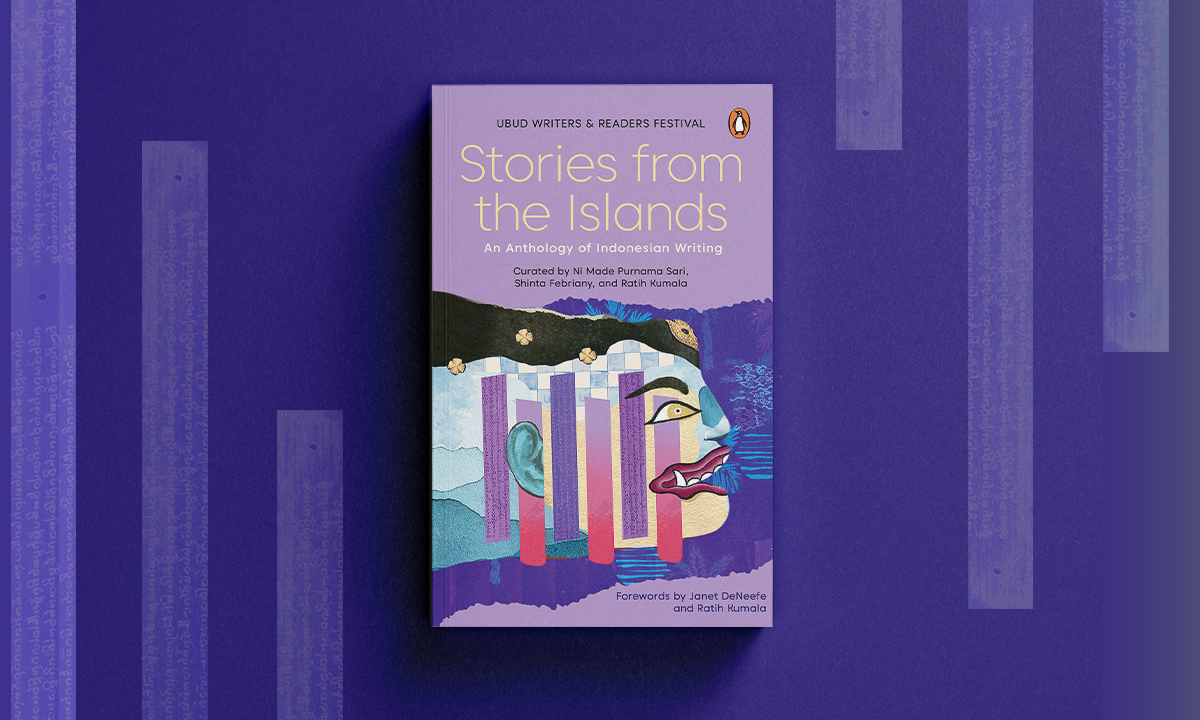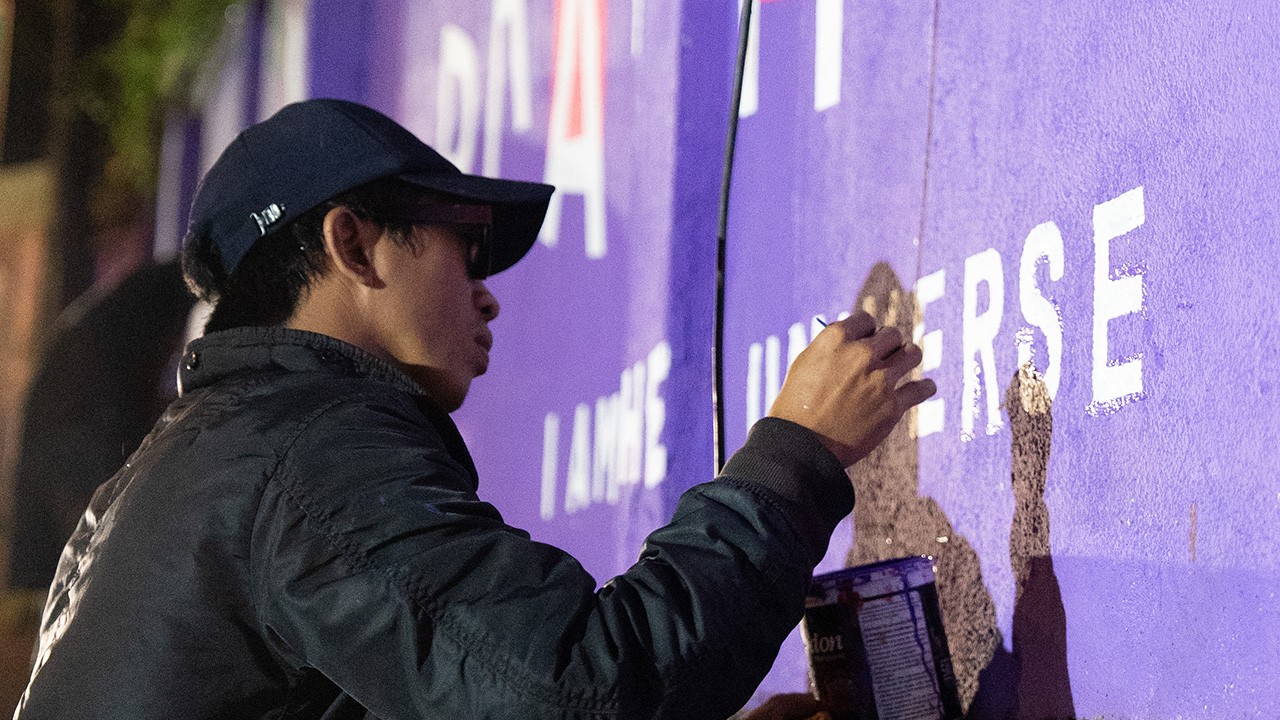We asked writers from our 2023 Festival program and our staff for their favorite books they discovered last year. From new picks to favorites they have resolved to finally tackle, we hope you enjoy this selection of books we recommend diving into.
The Year in Reading: Literacy Discoveries 2023
Homegoing
by Yaa Gyasi
“It is tricky to summarize what this epic book really is into one succinct paragraph or a statement given its ambitious feat, number of characters and plots. But it is amazing how despite it tries to chronicle the livelihood of several generations of Ghanaians women throughout different facets of its country's history, it weaves in perfectly. Most characters presented here is believable because I must candidly say that this one hits too close to home, with our experience as Indonesian woman living through generations who have undergone colonization, civil conflicts, slave (plantation) economy and class struggle, and most importantly, how despite time have changed and advance progress took place, we women still face the same issues.”
Rain Siahaan, Partnerships Manager

Revolusi: Indonesia and the Birth of the Modern World
by David van Reybrouck
“I have been reading the majestic and wonderful new history of Indonesia’s struggle for independence by Belgian author David van Reybrouck. Published originally in Dutch in 2020, Revolusi made waves in the Netherlands for the hard questions it raises about the de-colonisation process. This is no re-hash of well-known history, the author tramps across the world in search of still living participants and witnesses to an event he says changed the world. Long and exhaustive, van Reybrouck sheds new light on Indonesia’s struggle.”
Michael Vatikiotis, Writer, Journalist, and Private Diplomat

Lebih Senyap dari Bisikan
by Andina Dwifatma
“Sebagai penulis, saya terbiasa membaca menggunakan dua kacamata, yakni kacamata pembaca dan kacamata penulis. Menikmati cerita sembari menilik penceritaan ketika membaca fiksi adalah hal yang menantang sekaligus menyenangkan, dan di tahun 2023 saya melakukan keduanya sambil menangis saat membaca Lebih Senyap dari Bisikan karya Andina Dwifatma. Novel terbitan Gramedia Pustaka Utama tahun 2021 ini, di tahun yang sama, menjadi Buku Sastra Pilihan Tempo.
Novel kedua Andina Dwifatma ini bercerita tentang kisah cinta dan pernikahan Amara dan Baron. Mereka menikah atas dasar cinta, bertahan demi (buah) cinta, dan rusak karena cinta jua. Cerita cinta dalam Lebih Senyap dari Bisikan barangkali bukanlah hal langka di dunia nyata, kita bisa menemukannya di sudut-sudut tempat tinggal manusia di dunia ini. Namun, cara Andina Dwifatma menceritakan cerita cinta keduanya membuat isi buku ini bergerak seperti pisau yang amat tajam; pelan-pelan menyayati kulit. Tanpa terasa, di akhir cerita, kita telah berlumuran darah sendiri, lantas berpikir kembali: apakah cinta akan selalu lebih sering menyakiti ketimbang memberi rasa senang dan tenang?
Keragaman sudut pandang cinta berkelindan melalui hubungan-hubungan suami-istri, orangtua-anak, antarteman, bahkan antara dua orang asing. Seluruhnya kemudian dijahit menggunakan nilai-nilai agama dan sosial yang ada di masyarakat serta di dalam keluarga kecil (sebab setiap keluarga dalam novel ini digambarkan memiliki nilai-nilainya sendiri).Sebagai pembaca saya seperti diajak memproyeksikan kemungkinan-kemungkinan yang akan terjadi jika sikap kompromi oleh para perempuan tak dimunculkan dalam sebuah hubungan antarmanusia. Para tokoh perempuan—Amara, ibunya, mertuanya, pembantunya, serta teman Amara yang seorang ibu tunggal—sungguh bergerak seperti cermin-cermin yang saling berhadapan dan saya ada di tengah-tengah mereka, menatapi semuanya bergiliran; di situ emosi saya muncrat seperti sari lemon yang membasahi luka-luka. Oleh karenanya saya jadi sering menangis membaca lembar demi lembar kisahan mereka. Dan, sebagai penulis saya dibuat takjub oleh kepengerajinan Andina Dwifatma memilih diksi, merangkai alur cerita, menggarap karakter tokoh, dan mempertahankan premisnya (saya belum pernah menulis novel, dan membayangkan kerja keras seorang penulis melahirkan novel bagus seperti ini membuat saya menangis malu).”
Ilda karwayu, Indonesian author and Co-Director of the Makassar International Writers Festival

The Compass
by Henry Manampiring
“Henry Manampiring has presented the Arete Philosophy, an ancient Greek philosophy, in a language that is easy to understand. Arete's philosophy teaches us how to live a happy life and how to be the best version of yourself. If you are looking for quality but light reading, this is definitely a book to consider. The best part about it is that Henry has made the philosophical theory relatable to our current life situation, which makes it easy for us to understand.”
Dwi Ermayanthi, Festival Manager

What I Talk About When I Talk About Running
by Haruki Murakami
“A deep, reflective, and meditative memoir using running as a metaphor for Murakami's fiction-writing process. Murakami takes us from bar owner to best-selling novelist and marathon runner, unpacking the commitment and discipline needed to achieve these goals. Through thoughtful prose, he reveals the formula for success in both, applying it to long-haul challenges in life.”
Hannah Curtis, Head of International Programming

The Other Side of Things
by Ahn Kyuchul
“I managed to find a book that I would love to read repeatedly on random pages. My pursuit of collecting as much gentleness as possible takes its peak this year. Naturally, I put distance on work that puts me in anxious mode as an aftertaste (thanks to my high cortisol). I remember mindlessly scrolling to kill time and this book came up on my screen, it stopped me in my tracks. I haven’t heard about the book and writer before, the caption briefly explains him as a South Korean-based visual artist who creates sculpture that explores interrelationships between objects and symbols. I’m sold. Without reading any reviews about the book (this is not my usual decision-making purchase process per se) I ordered the book online. The Other Side of Things by Ahn Kyuchul is an essay and drawing collection observing daily objects and events. It’s a catalog of the mundane through a microscopic lens in the balance of being poetic and critical. His writings are calming and honest. It put me in a similar effect when I was existing in the middle of nature: feel small. The short length of the essay portrays how mature his conceptual way of seeing is. One of the writings that is memorable for me is about when one morning he wakes up on his 64th birthday, the same age when his father passed away. He reflected on his sadness and anger at the death of his father and how the emotions did not stay with him anymore, starting tomorrow he will live the days that his father never experienced. He also repeatedly observes the importance of knowing how to stop. As a child, the first thing to learn is how to stop: how to stop screaming, to stop playing, and to stop doing. It appears in his reflection on his profession as an artist. Other professions have a timeline and will retire at a certain age while artists mostly work their whole lives, even when the physical limitations are present some artists are too stubborn to stop working except Marchel Duchamp who stopped making art to play chess. He self-questioned the reason why he still works now. It’s a rare insight from an artist perspective and it makes me laugh.”
Lala Bohang, Indonesian Visual Artist and Writer

The Wren, The Wren
by Anne Enright
“A heartfelt mother and daughter tale with a touch of Enright quirky humour that pulls you in all directions. One of those directions is Bali, which features in the book!”
Janet DeNeefe, Festival Founder and Director

Trilogy Jirah: Janda Dari Jirah, Si Rarung, and Manggala Kalki
by Cok Sawitri
“Cok Sawitri helps you cast away fears and terrors in the stories of Calonarang and black magic often heard in Bali.”
Gustra Adnyana, Indonesian Program Manager

I'm a Fan
by Sheena Patel
“The story follows an unnamed female protagonist in an affair with a renowned artist, who is linked to an even more famous influencer. The book resonates well with our current fascination with the lives of others. A perfect summer read!”
Nicola Walpen, Head of Marketing & Communications

Ronggeng Dukuh Paruk Trilogy
by Ahmad Tohari
“I only read this trilogy in 2023, about 40 years late (the first of the trilogy, Ronggeng Dukuh Paruk, was first published in 1982). First I thought I’d regret reading this so late, but then again, come to think again, it may be just the right time to read it. The trilogy has undergone a lot in these 4 decades, including censorship by Suharto’s regime, and its eventual liberation post Suharto era. One may wonder if it’s completely free now.Reading the trilogy is a complete sensorial experience. Ahmad Tohari does not spare in describing the details of the surrounding environment that goes along with the story. It is I could almost hear the flaps of the birds, the buzzing of insects, the dripping of morning dew, until the stench of the dying. I think ‘visceral’ is the right word for it, I don’t know. All I know is the book is unputdownable, as I was continuously transported into tumultuous Indonesia in the 1960s.
While the romance alone is captivating, and heart-breaking at the same time, its layered themes that makes this trilogy so powerful. You get a glimpse of rural Javanese sexuality in pre-Islamic society. The fictitious (or not?) village (“dukuh”) of Paruk, located somewhere in Central Java, was described as still adhering to ancient spirituality, beliefs in ancestral spirit, and black magic, far yet from dogmatic practice of Islam in typical rural Java as we know it today. We see a different culture of women sexuality, where prostitution is not seen as such, but a legitimate manifestation of the spirit world, and even as community pride.
Srintil, the main protagonist, is the dancer believed to be ‘perched’ upon by ancient dancer spirit which had long abandoned the village. The initiation ritual is not for today’s meek hearted, because she has to lose her virginity to the highest bidder. The story also hinted deliberate permanent damaging of the womb, because a pregnant dancer lost her dancing and sexual permit (and money that comes from the men). Yet Srintil embraced all this as just a price to pay to enjoy her elevated status as a powerful revered dance. Her only grief is her loss of her true love, Rasus, who could not stand the love of his life is shared by many men.
The story is also an unofficial testimony to what happened during the ‘communist purged’ following the failed coup attempt by Indonesian Communist Party in 1965. While much has been written and spoken about the atrocity, where hundreds of thousands of innocent lives allegedly were murdered just from association with Communism, without evidence or legal process, this accounts never officially made the formal historical narrative of the country. There is a mix of shame of admitting this dark chapter of our country, and perhaps some lingering fear of still possible witch hunt if anyone ever questioning the indiscriminate wiping of so called communism ‘sympathizers’. The trilogy took us down the pedestal of safe history observers, into the mud together with the victims. We shared the terror and confusion of these illiterate simple villagers getting dragged into bloody revolution of not their own making.That alone makes Ronggeng Dukuh Paruk is a must read for all Indonesians, not just literature enthusiast. ‘History belongs to the victors’ the saying goes. The trilogy tells the story of the losers. Of powerless people who never get proper acknowledgment by powerful people, from shame or just to preserve their rule. Reading Ronggeng Dukuh Paruk is more than just enjoying a best in class literature. It is also to remember, to preserve the losers’ story. That is the only way we prevent totalitarian regime from winning the narrative completely.”
Henry Manampiring, Indonesian Writer

RELEVANT news



























































